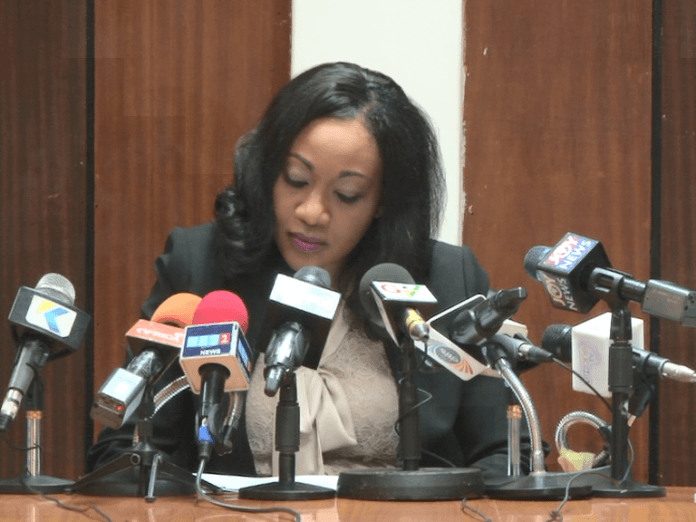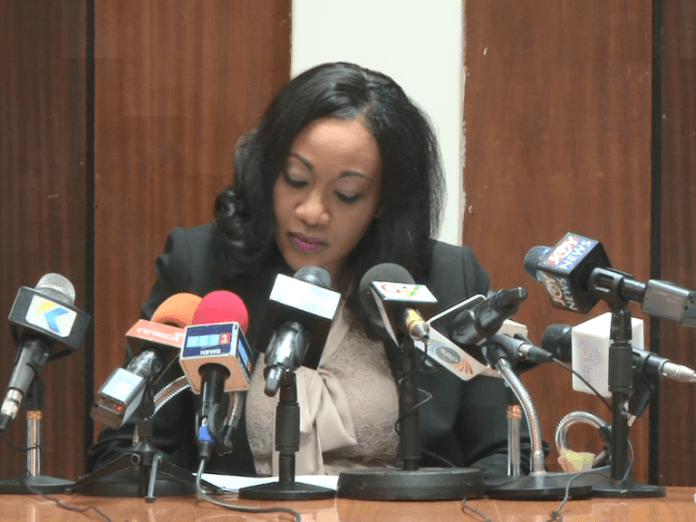
The Electoral Commission (EC) Representative of the Peoples’ Amendment
Act (ROPAA) Consultative and Implementation Committee on Monday engaged
stakeholders from the Diaspora to brainstorm on the roadmap to
operationalize the law.
Dr Akwasi Awua Ababio, Director Diaspora Affairs, Office of the
President, who led the delegation assured the Committee and the EC that
the Diaspora Community is ready to support and play vital role for the
ROPAA’s implementation.
“The Diaspora Community through its association will work out and
present tangible position paper towards the implementation of the law,”
Mr Ababio stated in Accra.
Other members of the Diaspora Community include: Mr Prince O. Sefah, Mr
Kofi B. Oppong, Mr Matthew Kyeremeh, and Mr Richard Ahiagbor.
Dr Bossman Eric Asare, EC Deputy Chairman, in-charge of Corporate
Services who also doubles as the Chairman of the Committee, explained
that the Act charges the EC with the responsibility to make regulations
for the implementation of the ROPAA.
“In complying with the obligation imposed by the Act, the Commission set
up a sub-committee to make recommendations on how best the ROPAA can be
implemented,” he said.
He said the law mandates that citizens be registered as voters while
resident abroad and being outside the jurisdiction of Ghana, and doing
so from/at their places of residence abroad or designated centres close
to their places of residence abroad or from/at the Ghana Mission/Embassy
within their jurisdiction abroad.
The Law also mandates that the Voter’s Identity Cards to enable them to
vote in public elections and referenda be issued to them while resident
abroad and being outside the jurisdiction of Ghana at the time of such
elections.
Responding to the issues raised, a Member of the ROPAA Implementation
Committee, the Reverend Dr Ernest Adu-Gyamfi of the National Peace
Council, said the Committee was conscious of the fact that there might
be people abroad who hold themselves out as Ghanaians but who were in
fact not Ghanaian citizens.
“Great care would therefore be taken, so that non-Ghanaians will not
take part in our elections, to this end the Committee recommends that
anyone who turns up at a registration centre abroad to register as a
voter must show evidence of citizenship,” he said.
On the Authenticity of resident permit, he said since the registration
officials may not be able to determine the authenticity of resident
permit, Rev Adu-Gyamfi explained that, the committee has recommended
that the EC contacted the appropriate authorities in oversee to provide
the Commission with the list of Ghanaians who have been granted resident
permit.
The EC ROPAA Committee members who participated in the stakeholder
engagement were Mrs Adwoa Abrefa Asuama, EC Member; and Dr Benjamin
Kumbuor, a leading member of the National Democratic Congress (NDC).
Others were Professor Ransford Gyampo of the University of Ghana, and Mr
Kofi Akpaloo, Representative of the Minority Parties without
representation in Parliament and Leader of the Liberal Party of Ghana.
Dr Kojo Asante of the Centre for Democratic Development (CDD); Mr John
Boadu, General Secretary of the New Patriotic Party (NPP);
were however absent.
It would be recalled that following advocacy by interest groups, a Bill
was introduced in Parliament in 2006, the Representative of the People
Amendment Bill (ROPAB) to amend the representation of the People’s Law
of 1992 PDNC Law 284.
The PNDC Law 284 did not make provision for Ghanaian citizens other than
persons working in Ghana’s diplomatic missions, persons working with
international organisations of which Ghana is a member and Ghanaian
students on Government scholarship, to be registered in the countries
where they reside.
The ROPAA, Act 2006, ACT 699 was therefore passed to extend the right of
the Ghanaian to participate in voting in public elections and referenda
to Ghanaians living outside Ghana.


